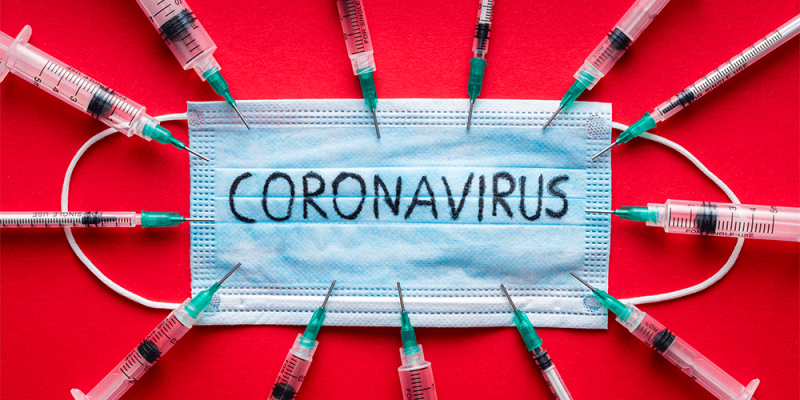DNA based vaccines are a type of vaccine that are developed by delivering a specific antigen coding DNA sequence into the cell of an organism. As a result, the immune system responds to the DNA sequence and generates an immune response.
COVID-19
The COVID-19 virus is a coronavirus that can cause illness in humans. Scientists are investigating ways to develop an anti-COVID-19 vaccine that can prevent the virus from causing disease. Currently, the main methods are the use of viral vector vaccines or DNA vaccines.
Using a DNA based vaccine, a piece of DNA is inserted into a human cell. This will trigger the production of antibodies and white blood cells to attack the virus. These antibodies will fight against the COVID-19 virus and help the immune system to recognize and attack the virus.
A DNA based vaccine can be produced in a matter of weeks. It is inexpensive to produce and has the advantage of being stable and scalable.
One of the most important advantages of DNA-based vaccines is their ability to deliver the antigens to the immune system. They have been studied for years to study their use in cancer immunotherapy, infectious diseases, and immunotherapy of viral infections.
Recent advances have improved the immunogenicity of DNA-based vaccines. Among other things, these improvements include improved delivery routes and formulation.
There are a number of advantages to using DNA-based vaccines, including the fact that they are stable and do not interfere with human DNA. This means that they can be rapidly developed for pre-clinical studies and clinical trials.
Another benefit of DNA-based vaccines is their use of bacterial plasmids, which are already used in genetic engineering. Plasmids are able to replicate independently of the main chromosome, allowing them to store and transmit genes to other cells. Various kinds of microparticles, such as nanoparticles, can also be used to increase the delivery of DNA-based vaccines into the body.
Despite some initial limitations, there are several advantages to using DNA-based vaccines for the COVID-19 virus. These include the rapid manufacture of a vaccine, the ability to study its immunogenicity in animal models, the low cost of production, and the ability to scale up for large-scale clinical trials.
Cancer
DNA based vaccines for cancer are promising strategies for harnessing the immune system against cancer. They are also safe and well tolerated. However, they are not without challenges. There are several factors that have been identified that can affect the effectiveness of a DNA vaccination. These include the delivery mechanism and the immunogenicity of the antigens. In order to improve the vaccine’s effectiveness, researchers have developed various methods and strategies.
The first strategy for improving the effectiveness of a cancer DNA vaccination is to increase the immunogenicity of the antigens. A rational choice of encoded antigens will overcome many of the problems that are associated with antigen loss, antigen modification and tolerance.
For example, a poly epitope DNA vaccine can enhance the immune response by encoding a variety of neoantigens. Moreover, this approach can overcome the heterogeneity of tumor cells and T cells. Polyepitope DNA vaccines are being tested in many clinical trials.
Another strategy for increasing the efficacy of a cancer DNA vaccination is to create a chimeric vaccine that contains a variety of neoantigens. This strategy is being used in the NCT03199040 study. It could reduce the rate of metastasis and enhance the CTL and Th responses. Moreover, this strategy can increase the antibody titer, which is one of the key indicators for successful vaccination.
Recent studies have shown that a polyepitope neoantigen RNA vaccine can be effective in melanoma patients. Also, it can decrease the growth rate of melanoma and the occurrence of metastasis. Nevertheless, this strategy has yet to be validated in human trials.
While there is significant progress in recent years in developing DNA vaccines, there are still a number of challenges to overcome. Among these, immune tolerance to neoantigens is a major issue. Moreover, the immune system is constantly under threat of developing a tumor-associated self-antigen. Therefore, further research is needed to evaluate the potential of a cancer DNA vaccination.
Other studies have shown that combinations of DNA and other therapeutic strategies have the potential to greatly improve the clinical outcome of a cancer vaccination. These strategies can be broadly used to develop personalized cancer vaccines.
HIV
HIV DNA based vaccines are a promising approach for improving the protection against the infection. They have the potential to induce protective immunity against the disease-causing virus in the nonhuman primate model. There are currently two types of DNA based vaccines. The first is composed of bacterial plasmids and the second is manufactured chemically.
Bacterial plasmids are used in genetic engineering and provide a simple tool for transferring genes between cells. Their use is widespread. Unlike the main chromosomal DNA, plasmids are not subject to normal replication and therefore can survive without replicating themselves. It has been shown that this method is very effective in producing gene expression vectors for genetically engineered products.
DNA vaccines are designed using codon-optimized sequences that enable exceptionally high levels of coding sequences. These plasmids contain a leader sequence that facilitates the expression of the target mRNA. This type of vaccination is useful to generate rapid assessment of potential candidates for HIV vaccine development.
RNA-based vaccination is also possible and it is produced chemically. RNA vaccines are relatively easy to manufacture. During production, the RNA molecules are read by the host cell protein-making machinery. Viruses are genetically encoded in the RNA and then converted into a DNA structure. Various forms of HIV envelope proteins can be expressed in RNA-based vaccines.
Alternatively, live virus vectors are used. They are able to infect professional Ag-presenting DCs and enhance the DNA-primed immune response. They may also interact with chemokines to modulate immunity. Vaccines using this strategy have been shown to enhance the proliferation of effector T-cell populations, increase memory T-cells, and reduce the rate of cytokine-induced effector cell death.
While a lot of research remains to be done to enhance the effectiveness of DNA vaccines, the approach has shown great promise. Among other benefits, this type of vaccination is relatively easy to produce and it offers improved vaccine stability. In addition, it is more widely applied in the field of HIV vaccine development.
For HIV vaccines, the use of a recombinant viral vector has also been proposed. Recombinant VSV has been found to elicit high levels of primary CD8 responses to HIV Ags.











Comments